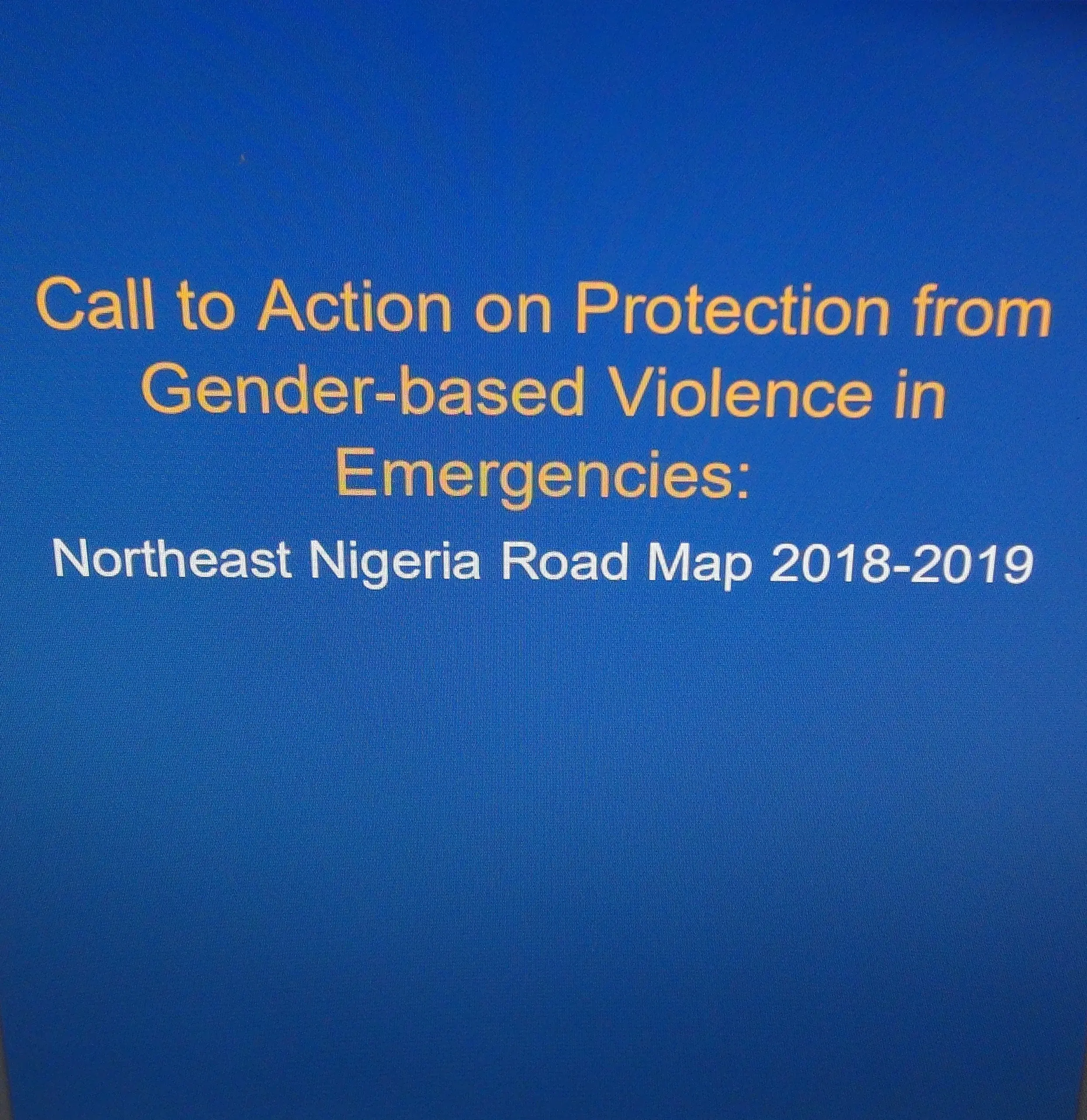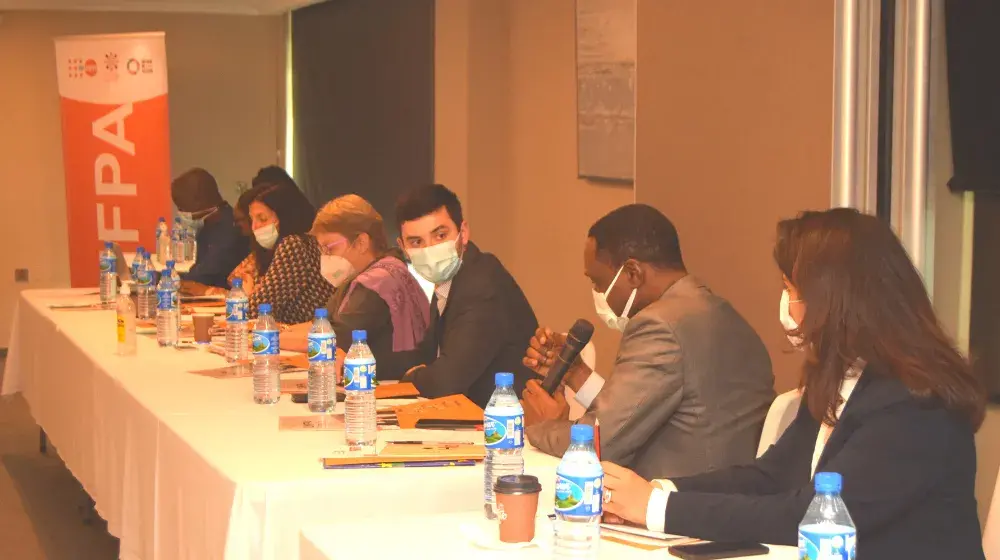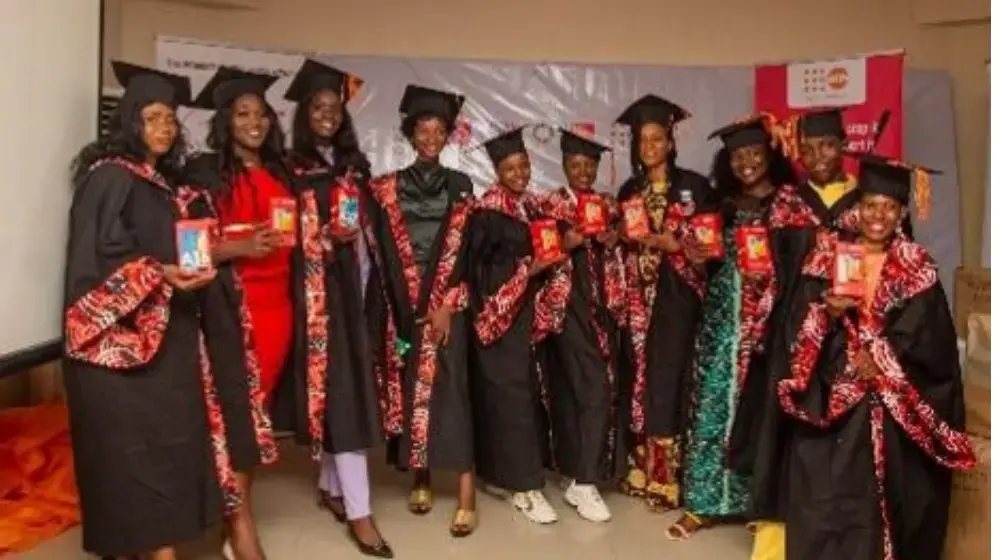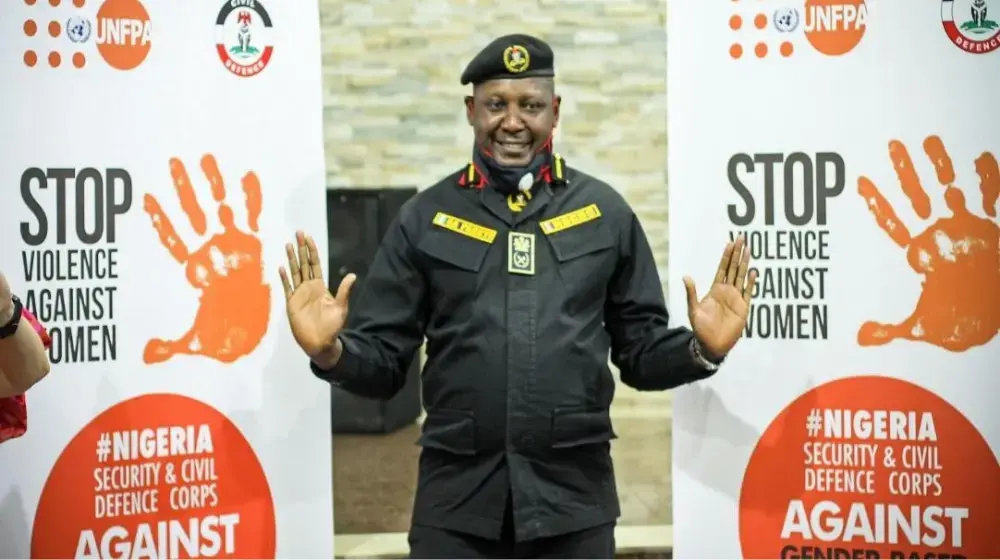Gender-based violence (GBV) is a horrifying reality for many of those affected by conflict and crises, particularly women and girls. The Call to Action on Protection from Gender-based Violence in Emergencies (Call to Action) is a global initiative launched in 2013 with one simple goal: to ensure that every humanitarian response, from the very start, provides safe and comprehensive services for GBV survivors and mitigates the risks of GBV. Members of the Call to Action are States and donors, international organizations, and non-governmental organizations. They have committed to take collective action to address GBV, to be mutually supportive in this lifesaving work, and to hold one another accountable for action. The Call to Action Road Map 2016-2020 provides the global operational framework for these efforts. To advance implementation of the Call to Action at the country level, Call to Action members working in Northeast Nigeria, the Nigerian Ministry of Women Affairs and Social Development which chairs the Gender-based Violence Sub-Working Group and several other stakeholders, came together to pilot the development of a two-year Road Map for the most conflict-affected states of Northeast Nigeria—Borno, Adamawa, and Yobe. This is a groundbreaking initiative to create a localized multi-year Road Map that is informed by the global framework but tailored to address the GBV challenges in a particular area. The Government of Nigeria has identified protection and Gender as one of its three key priorities in the 2018 Humanitarian Response Plan, and pointed to the Implementation of thecal to Action as “a pivotal point and a critical foundation for stability and solutions in affected areas.” The Northeast Nigeria Road Map is a living document and will be adjusted over time as circumstances evolve. It is hoped that additional government and civil society stakeholders will join the initiative, bringing their valuable perspectives and expertise to the work of protecting communities from GBV, especially women and girls.
GENDER-BASED VIOLENCE CHALLENGES IN NORTHEAST NIGERIA
As the crisis in Northeast Nigeria enters its ninth year, an estimated 7.7. million people are in urgent need of humanitarian assistance and protection in the most affected states of Borno, Adamawa,and Yobe. This includes some 1.6 million internally displaced persons (IDPs), of which 48% are women. Gender-based violence is widespread. A study conducted in 2016 found that six in ten women in the Northeast have experienced some form of GBV. Displacement, limited access to services and protection, and disruption of livelihoods greatly exacerbate the risks of GBV. Women, girls,and boys report having to engage in survival sex for money, food and permission to move in and out of IDP sites. Sexual abuse and other violations against women and children are widespread inside and outside IDP camps and a culture of impunity for perpetrators contributes to continued violence. Conditions in IDP sites often do not meet basic protection standards. Female-headed households are at particularly high risk. The situation is also quite grave for adolescent girls who are targeted while performing such basic tasks as collecting firewood, fetching water or using communal latrines. The safety and well-being of adolescent girls are also threatened by early marriage and forced prostitution in addition to survival sex. Girls and women who have been abducted by armed groups endure rape and forced marriage during captivity, and then must deal with stigmatization and possible rejection from the community upon their release. While the humanitarian response to GBV improved in 2017, there are still significant cant gaps that must be addressed in the quality and reach of the response, in access to medical, psychosocial, legal services and livelihoods for survivors, and in the delivery of essential protection and assistance.
This document covers humanitarian aid activities implemented with the financial assistance of the European Union. The views expressed herein should not be taken, in any way, to reflect the official opinion of the European Union, and the European Commission is not responsible for any use that may be made of the information it contains.





